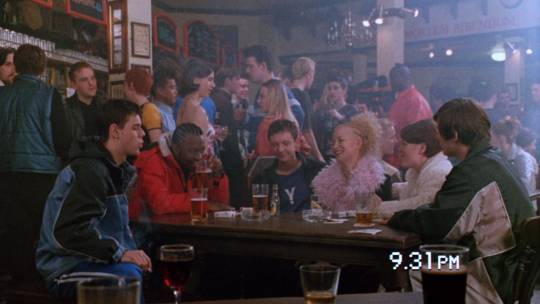Text

She either has no pupils, or just really huge ones. I haven’t decided which one it is yet.
13K notes
·
View notes
Text
"I'd forgotten that what comes to you when you take a psychedelic is not always a revelation of something new and startling; you're reminded of simple things you know and forgot you knew, old, basic truths that long ago became clichés, so you stopped paying attention."
-Shura Borodin
from PiHKAL: A Chemical Love Story (1999) by Dr. Alexander and Ann Shulgin.
0 notes
Quote
...allow me to clarify,
I am not [a psychonaut].
I am no longer
part of that cabal,...
But, as a philosopher, I will write of it
Mydriasis Aletheia
1 note
·
View note
Text
Apotheogen
n.
A psychoactive substance that induces alterations in perception, mood, consciousness, cognition, or behavior for the purposes of subduing personal drives in a profane context.
The functional opposite of an entheogen.
From the root, apotheo- (apotheosis, to deify) and the suffix -gen (genesis, to come into being).
Apotheogenesis can be understood as
the act of concealing or obscuring the self
through the singular focus of one's will onto a pattern or substance,
Raising it to a god-like position within their ideology.
The individual is thus subsumed by it, distracting from
dissonant parts of the self which are incongruent
with the whole. Such parts become hidden
though their drives remain in conflict.
0 notes
Text
Psychonautics
Psychonautics is an act of configuration.
It refers to a methodology
for describing and explaining
configurations of consciousness,
And a research cabal
in which adherents explore
and harness those configurations.
The power of psychonautics
is that configurations of consciousness
have resonant effects on meaning and belief.
The psychonautic cabal emerges from a recognition of this.
Psychonautic exploration is not without risk
to the physical and psychological well-being
of the researcher, to their essence and beliefs.
An experienced and trustworthy practitioner
can provide a tether to your shared reality,
Advanced practices require caution and patience
to navigate safely; “There is no casual experiment”.
In the Western paradigm, classical psychonautics
was defined by contemplative and ritual techniques,
The religious or spiritual practices of a tribe or society.
Modern psychonautics has been increasingly defined by
the use of psychoactive substances, which is likely the result
of secularization, advances in pharmacy, and the war on drugs.
In contemporary society psychoactives are a valuable commodity
that many people use (or misuse) for a variety of reasons.
Some will seek out drugs they have not tried before.
Few shall devote themselves entirely, investing
their time and resources in learning about,
acquiring and assessing psychoactives.
This latter cohort aligns with the methodology
of psychonautics, they commit to understanding
through practice. Indeed many become well-versed
in Novel Psychoactive Substances (NPS), some academics
assume this is the mark of a modern psychonaut
but it is mere specialization
rather than characteristic of.
As more initiates into psychonautics
emerge from drug experiences
so does the cabal become more chemical.
Nevertheless, it still draws adherents from a diversity of practices.
With regard to ontological risks, the ranks of the cabal are full
of disordered, misguided, or warped adherents whose
heedless practice undermines the meaningfulness
of consensual reality. This is not uncommon
as there is no formal training for initiates.
The cabal is decentralized, without singularly defined leadership
or ideals, it operates through intrigue. Among its adherents
there are differences in practice, and so internal politics
wherein the ethos of configurations are disputed.
Within the cabal there exist ethical stances:
Cognitive liberals
who believe anyone using responsibly
should be allowed their methodology and be able to practice.
Universalists or absolutists
who believe everyone should be initiated, if not adherent.
Elitists and psychocrats
who hold that only their method and practice is valid.
Cognitive dissidents
who believe the methodology and its praxis
must not be vested in nation-states, corporations, or religions
if it is/they are to retain its power.
The cabal’s politics of intrigue
represent an unspoken power struggle
where the stakes are unclear, if even communicable.
It is ancient, perpetual, an eternal conflict over consciousness,
An infinite crusade over mind and psyché, and as the war on drugs
comes to an end, psychonautics will again be redefined
by its next wave of initiates, may they be wise and kind.
0 notes
Text
Psychoactives
A psychoactive substance is a chemical substance—other than a nutrient or essential dietary ingredient—that alters brain function to produce temporary changes in sensation, perception, mood, consciousness, cognition, and behavior.
Psychoactive substances have been used by humans for a variety of purposes since recorded history (e.g. as medicine, for recreation, as entheogens, or for research.
The Psychoactive Substance Index (PSI) is designed to catalog and provide relevant, accurate, and unbiased information for any and all mind-altering substances known to humankind, with a special focus on those with potential applications as mind-expanding tools.
The individual articles detail not just the history, chemistry, pharmacology, toxicity, and legality of each substance, but also its user-reported subjective effects (i.e. phenomenology). This is achieved in accordance with a standardized system of definitions and terminologies proposed in the Subjective Effect Index (SEI).
2 notes
·
View notes


